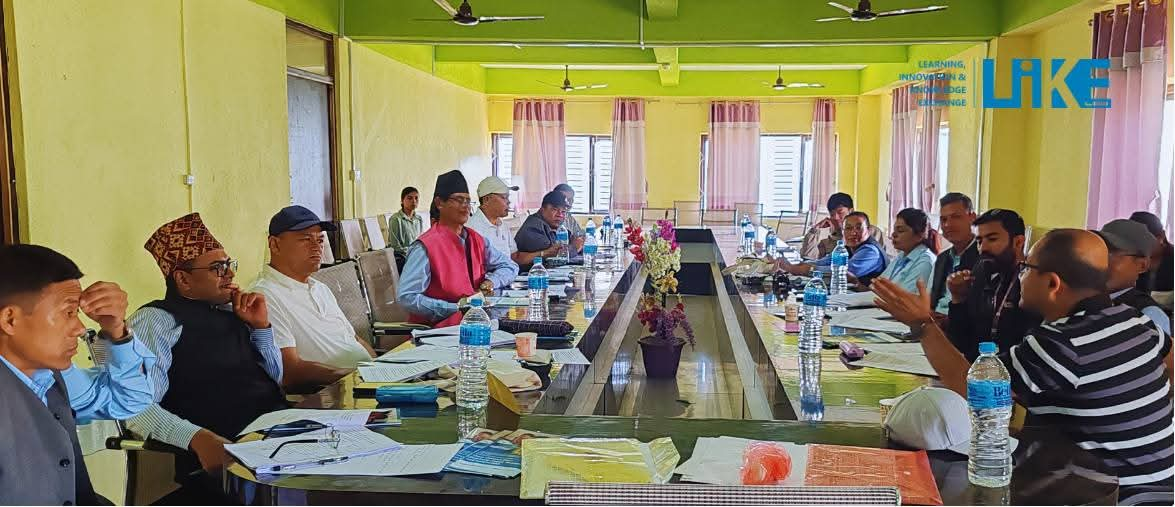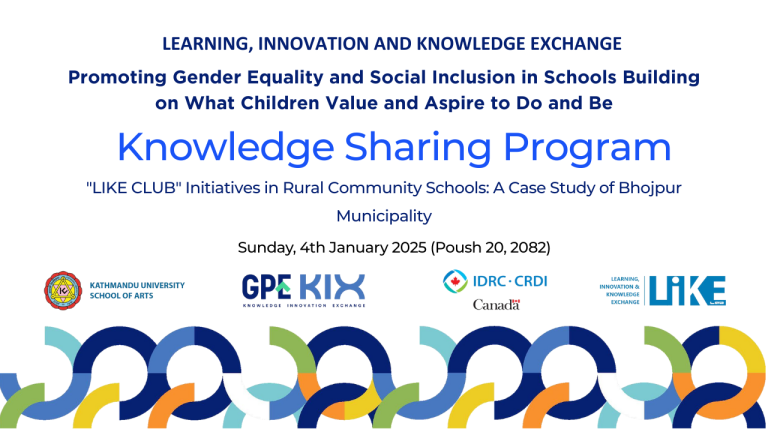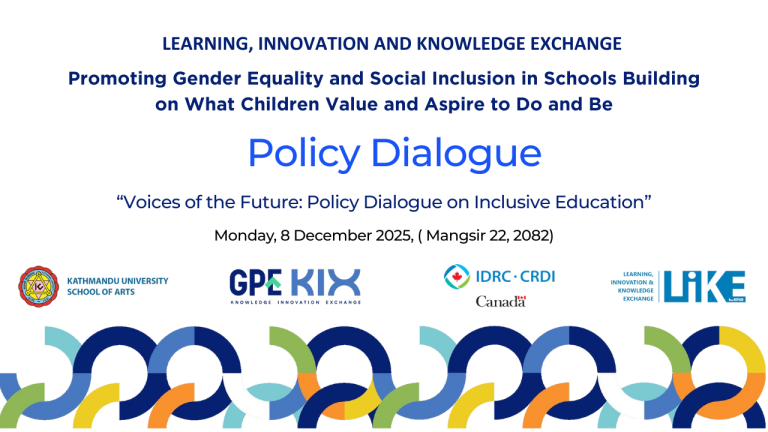
BHOJPUR, NEPAL, JUNE 8th, 2025 – The Learning, Innovation and Knowledge Exchange (LIKE) Lab, Kathmandu University School of Arts, organized a capacity-building session for schoolteachers in Bhojpur Municipality to strengthen the implementation of the LIKE Club and its Activity Manual. Held at the Bhojpur Municipality Office, the session gathered 19 teachers (14 male, 5 female) from various schools to review, refine, and reflect on the feasibility of proposed child-centered activities that build on children’s valued capabilities.
The primary aim was to gather practical feedback from teachers on the LIKE Club Activity Manual, assess its relevance to diverse school contexts, and co-develop inclusive strategies for implementation. The session also supported data collection for the Institutionalization Tracker as part of LIKE Lab’s ongoing research on institutional readiness.
Facilitated by Community Mobilizer Saurav Raj Bhandari, the session began with an overview of the LIKE Club’s mission, structure, and alignment with 16 valued educational capabilities. Roles of teachers, club executives, and general members were clarified, along with documentation and monitoring expectations.
Research Fellow Ms. Isha Karki presented the activity design framework, covering:
- Linked capabilities
- Age-appropriate implementation
- GESI considerations for inclusive participation
- Use of technology, scheduling, and required resources
- Roles of teachers, principals, and focal persons
Group Discussions: Teacher Feedback Highlights
- Inclusivity and Student Engagement
- Teachers suggested involving Grades 11 & 12 as volunteers or observers to ensure inclusivity without compromising the club’s child-focused goals.
- Emphasized modifying activities (like debates and speeches) for younger students using interactive games and storytelling.
- Training and Support Needs
- Recommended training not only for teachers but also for PTA members and non-teaching staff.
- Called for clear evaluation criteria and periodic incentives (e.g., awards for student performance in activities).
- Curriculum and Time Management
- Concerned about potential disruptions to classes, especially during lengthy activities like art competitions.
- Suggested scheduling meditation sessions (e.g., every Wednesday morning) and limiting quizzes and competitions to every two months.
- Behavioral Sensitization
- Urged training on respectful communication and handling student misbehavior, including avoiding disrespectful terms like “ta” during assemblies.
- Suggested more emphasis on positive reinforcement and private correction over public scolding.
- Resource Limitations and Contextual Challenges
- Noted disparity in resource availability between rural and urban schools.
- Highlighted challenges like absenteeism, understaffing, limited parental awareness, and lack of basic materials in some schools.
- Parental Engagement
- Stressed the need to involve parents through awareness campaigns to enhance understanding of the long-term value of LIKE Club activities.
- Proposed community activities like cleanliness campaigns to strengthen family and school ties.
Following that the teachers viewed an animated video on the 16 valued capabilities to reinforce conceptual clarity. Research Intern Utkrishta Sharma presented the Institutionalization Tracker and guided participants through a survey mapping school readiness for LIKE Club implementation.



